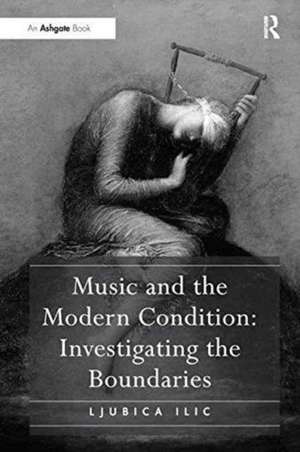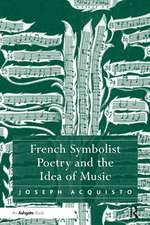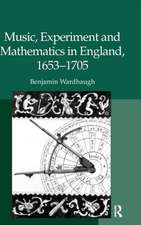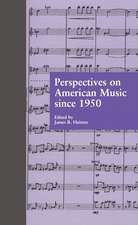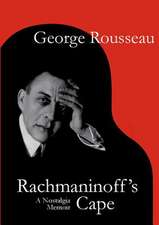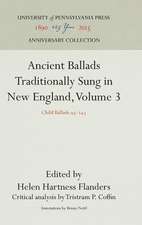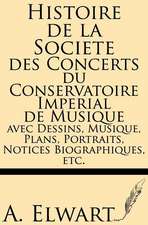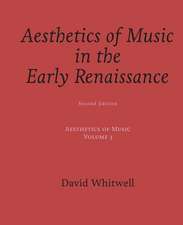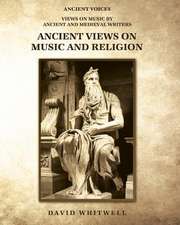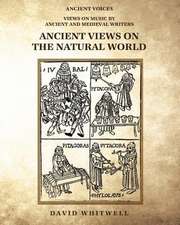Music and the Modern Condition: Investigating the Boundaries
Autor Ljubica Ilicen Limba Engleză Paperback – 28 noi 2016
| Toate formatele și edițiile | Preț | Express |
|---|---|---|
| Paperback (1) | 469.34 lei 6-8 săpt. | |
| Taylor & Francis – 28 noi 2016 | 469.34 lei 6-8 săpt. | |
| Hardback (1) | 1054.71 lei 6-8 săpt. | |
| Taylor & Francis – 28 oct 2010 | 1054.71 lei 6-8 săpt. |
Preț: 469.34 lei
Nou
Puncte Express: 704
Preț estimativ în valută:
89.82€ • 93.43$ • 74.15£
89.82€ • 93.43$ • 74.15£
Carte tipărită la comandă
Livrare economică 15-29 aprilie
Preluare comenzi: 021 569.72.76
Specificații
ISBN-13: 9781138273399
ISBN-10: 1138273392
Pagini: 132
Dimensiuni: 156 x 234 mm
Greutate: 0.45 kg
Ediția:1
Editura: Taylor & Francis
Colecția Routledge
Locul publicării:Oxford, United Kingdom
ISBN-10: 1138273392
Pagini: 132
Dimensiuni: 156 x 234 mm
Greutate: 0.45 kg
Ediția:1
Editura: Taylor & Francis
Colecția Routledge
Locul publicării:Oxford, United Kingdom
Notă biografică
Ljubica Ilic holds degrees from the University of Arts in Belgrade (BA in musicology) and University of California, Los Angeles (MA and PhD in musicology), where she was a Chancellor’s fellow. Ilic was an Ahmanson-Getty Postdoctoral Fellow (2007-2008), and a visiting professor in the department of musicology at UCLA (2008-2009).
Recenzii
'I cannot overemphasize the originality and brilliance of Ljubica Ilic's project. Seventeenth-century music continues to be viewed as an awkward transition between the Renaissance and the Enlightenment, and her insights shed light not only on music history but on European culture in general: the problems of artistic autonomy, of representation, of subjectivity, of the ethical responsibility of art, of theology. I was continually astonished by the insights she brings forward throughout the book.' Susan McClary, University of California Los Angeles, USA
Cuprins
Introduction The Limits of the Work, the Limits of the World, Ljubica Ilic; Chapter 1 Mirrors and Echoes: Beyond the Confines of Theatrical Space, Ljubica Ilic; Chapter 2 The Unutterable Silence: O Word, Thou Word that I Lack, Ljubica Ilic; Chapter 3 The Terror of Desire: Arbitrary Outcomes or the Dei ex Machinis, Ljubica Ilic;
Descriere
Two crucial moments in the formation and disintegration of musical modernity and the musical canon occurred at the turn of the seventeenth and the first half of the twentieth century. Dr Ljubica Ilic provides a fresh and close look at these moments, exploring the ways musical compositions shift to and away from ideological structures identified with modernity. The focus is on European art music whose grand narrative, defined by tonality and teleological development, begins in the seventeenth century and ends with twentieth-century modernisms. Seeing musical storytelling as a metaphoric representation of selfhood, and modernity as a historical continuum, Ilic examines the boundaries and relationships between the musical work, the subject, and modern European history.
